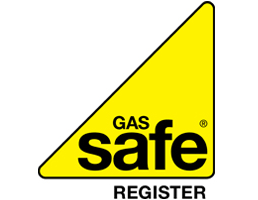Deprecated: Function wp_targeted_link_rel is deprecated since version 6.7.0 with no alternative available. in /var/www/vhosts/ukooa.co.uk/httpdocs/wp-includes/functions.php on line 6121
Deprecated: Function wp_targeted_link_rel_callback is deprecated since version 6.7.0 with no alternative available. in /var/www/vhosts/ukooa.co.uk/httpdocs/wp-includes/functions.php on line 6121
Deprecated: Function wp_targeted_link_rel is deprecated since version 6.7.0 with no alternative available. in /var/www/vhosts/ukooa.co.uk/httpdocs/wp-includes/functions.php on line 6121
Deprecated: Function wp_targeted_link_rel_callback is deprecated since version 6.7.0 with no alternative available. in /var/www/vhosts/ukooa.co.uk/httpdocs/wp-includes/functions.php on line 6121
Deprecated: Function wp_targeted_link_rel is deprecated since version 6.7.0 with no alternative available. in /var/www/vhosts/ukooa.co.uk/httpdocs/wp-includes/functions.php on line 6121
Deprecated: Function wp_targeted_link_rel_callback is deprecated since version 6.7.0 with no alternative available. in /var/www/vhosts/ukooa.co.uk/httpdocs/wp-includes/functions.php on line 6121
Central Heating Checks for Your New Home
Buying a new house is an incredibly exciting venture, especially if it’s your first step onto the property ladder. Don’t get too caught up with just the aesthetics of your potential property though, as there are a few central heating checks you should carry out before you sign on the dotted line.
Things to check before buying a house
So, you think you’ve found the perfect house for the next step in your life? Before you proceed, there are a couple of important things to check before buying to save the potential hassle and expensive outgoings further on down the line.
Central heating checks before buying a house are vital if you want to avoid replacing a whole water system just months after forking out for a deposit, furniture, and all other bills associated with moving house. Chances are there won’t be any significant problems with the boiler or central heating, and you can carry on the buying process as usual, but it’s always better to be safe than sorry.
Here are some things to check before buying a house in terms of the water system:
- The type of boiler. Ensure you know whether it is a combi, heat only, or a system boiler, as there will be different costs and maintenance needed for each type.
- Do all the radiators work without any issues?
- Is the heating mostly fuelled by electricity or gas?
- Are all of the parts in working order?
You can either do these checks yourself or ask the current homeowners whether a professional plumber can come in and verify that everything works well.
What type of boiler is installed?
The type of boiler can have a significant impact on the effectiveness of central heating and the overall cost of running the system. Some boiler types suit specific properties in terms of size, the number of occupants, and location, so the preference and the ultimate decision is usually very personal.
Here’s a quick rundown of the differences between the boilers and which type of property they most suit:
1. Combi boiler
This type of boiler will heat your water and your home instantly. They have been designed to provide large volumes of hot water very quickly, but this can impact the effectiveness of the heating system overall.
Combi boilers are mainly used in smaller homes with only one or two bedrooms, so if the property you’re looking at is on the smaller side, then this boiler is a great choice.
2. Heat-only boiler
This is the simplest kind of boiler and is usually found in larger homes. The water systems will often include a couple of tanks in the loft, a hot water cylinder, and the boiler itself. It can produce a large amount of hot water due to the multiple tanks and so is also perfect for businesses.
3. System boiler
A system boiler has a boiler and a cylinder, with all major components needed for heat and hot water built into the boiler. For this reason, you need to make sure you have enough space to store a larger boiler, such as an airing cupboard or a substantial empty area in your garage.
One major downfall of a system boiler is the hot water is limited. Once all of the pre-heated water in the cylinder has been emptied, you will have to wait for the next lot to warm up.
If you’re unhappy with the type of boiler currently fitted, it may be worth getting in touch with a few local plumbers to find out the costs for boiler installation.
Check your radiators
One thing that many people overlook when doing a thorough check of a potential property is looking at the radiators. Don’t be tempted to just look at the aesthetics and assume everything is in working order. Just because they look okay, there could still be several issues lurking below the surface.
Some hidden radiator problems include:
- Leaks – Look for signs of a leak around the radiator. These can be puddles of water on the ground, discolouration of paint or bubbling wallpaper, or rust on metal surfaces.
- Blockages – A blockage in your radiator will need to be examined by a professional plumber, but a sign could be cold spots when the heating is on.
- Incorrect thermostat fittings – This can be difficult to determine if you’re not a professional, but you need to make sure the radiators are fitted with the correct thermostat devices.
Some issues with the radiators can be resolved quickly and easier, so it shouldn’t be a major turn off from the house of your dreams. For example, if there is a suspected blockage, a plumber would be able to flush it with a limescale treatment.
Research the type of fuel
Knowing what type of fuel powers your central heating system can give you information on many other aspects of your new home. The main fuel types for your central heating will be electricity or gas, but some rural areas will use liquid petroleum gas (LPG).
If your water system is powered entirely by electricity, you need to consider all of the other electrical components of the household and try to work out what your average monthly bills would be based on the usage.
The Energy Performance Certificate is there to give you an idea of the efficiency of the systems within the household and so point you in the right direction of how high your annual bills will be.
How to check if the central heating thermostat is working
Another check for your central heating is to see whether the thermostat is working. This is because it can affect the temperature inside your home and make it either uncomfortably hot or cold at random times during the day.
How do I know if the thermostat is broken in my house?
There are a few signs that show you that a thermostat in your potential new home is broken. These include:
- The display is completely off or won’t respond
- The heat or air conditioning doesn’t work
- Your home never reaches the temperature you set it at, or the heating stays on at all times
If you notice any of these things as you view a property, make sure you inform the homeowner or the estate agent. It may be that the owners are genuinely unaware of the problem and it allows them to fix it before you strike a deal.
If you would like further peace of mind, a professional plumber will come out and conduct the necessary central heating checks for your new home to make sure everything is in order.


